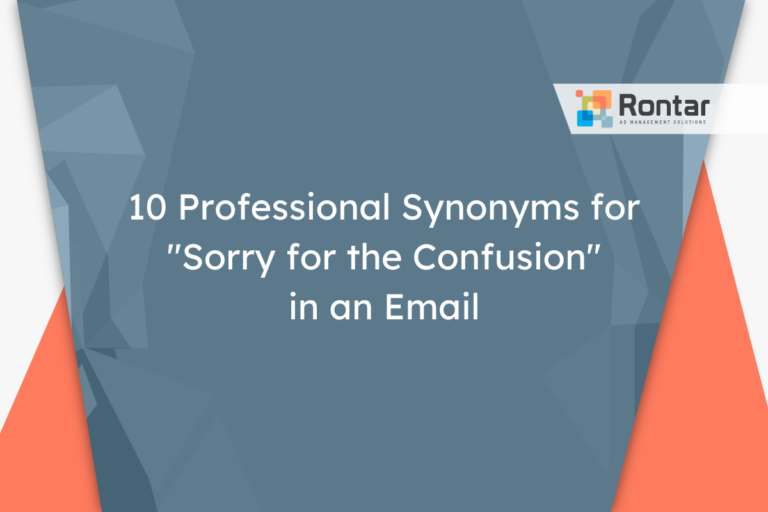10 Other Ways to Say “Thank You, Too”

Expressing gratitude is a key part of communication, especially in professional settings. However, saying “thank you, too” can sometimes feel repetitive or inadequate.
This article offers 10 alternative ways to express the same sentiment, each suited for different situations. Whether you’re looking for a formal, informal, or polite way to say thanks, we have you covered with examples and explanations.
Is It Professional to Say “Thank You, Too”?
The phrase “thank you, too” is generally considered polite and is suitable for both formal and informal situations. However, the level of formality can depend on how the phrase is delivered and the setting in which it is used. In professional settings, more formal language might be preferred, but “thank you, too” can still be appropriate in response to someone else’s thanks, acknowledging mutual appreciation.
In situations where mutual thanks are being exchanged, such as after a meeting concludes and both parties have expressed gratitude for each other’s time, using “thank you, too” is fitting. This phrase effectively returns the gesture of thanks, making it suitable for emails, conversations, or any situation where you’ve already been thanked and wish to reciprocate the sentiment.
Here’s a brief example of this phrase used in an email:
Hi Alex, Thank you, too, for your kind words about the presentation. I'm glad it was well-received. Best regards, Sarah
In this example, notice how “thank you, too” is used to reciprocate Alex’s gratitude, making the email exchange feel more personal and appreciative.
Pros:
- It acknowledges mutual appreciation and respect.
- Can make interactions feel more personal and sincere.
- Suitable for both formal and informal contexts, depending on delivery.
Cons:
- In highly formal settings, it might be perceived as too casual.
- Some may prefer more varied or creative expressions of gratitude.
Although “thank you, too” is widely acceptable, someone might want to use an alternative phrase to either match the formality of a specific context or simply to avoid repetition. Finding synonyms or alternatives can help diversify your language and make your expressions of gratitude seem more thoughtful or tailored to the situation. In professional settings, especially in writing, some might consider using alternatives that better reflect the formal tone or the specific nature of the gratitude being expressed.
10 Other Ways to Say “Thank You, Too”
Saying “thank you, too” can sometimes feel repetitive or too simple. Here are 10 alternative ways to express the same sentiment more creatively or formally.
- Thank you as well
- Thanks to you as well
- Likewise, thank you
- Similarly appreciated
- Equally grateful
- I’m also thankful
- My thanks in return
- Gratitude in return
- Sincere thanks, likewise
- Much obliged, too
1. Thank you as well
This alternative is almost as straightforward as the original phrase but adds a little variety and is slightly more formal. It’s a synonym that maintains the formal and polite tone, making it applicable in both professional and informal contexts. This choice is especially suitable in messages where you want to keep things simple and direct without being too casual.
For example, in a professional email, where brevity and clarity are appreciated, we recommend using this alternative. Here’s how it can be effectively used:
Hi Martin, Thank you as well for being so supportive throughout the process. Best regards, Emily
2. Thanks to you as well
This alternative adds a slightly more personal touch to the message. It’s informal and suggests a mutual exchange of gratitude. This phrase is better suited for informal emails or messages where a friendly and appreciative tone is desired. It’s a polite way of reciprocating thanks that feels more conversational.
Here’s a sample interaction in an email where this alternative fits nicely:
Hi Leo, Thanks to you as well for taking the time to meet. Cheers, Nina
3. Likewise, thank you
This synonym emphasizes the reciprocation of thanks and is more formal. It’s an excellent fit for messages where you want to express mutual respect and gratitude without sounding too casual. The phrase is particularly professional and is often used in business communications where both parties have contributed value.
For instances where a mutual appreciation is clearly communicated, this is an exemplary choice. Here’s an example of its usage:
Dear Dr. Hayes, Likewise, thank you for your guidance and support. Sincerely, Alex
4. Similarly appreciated
This alternative comes off as both formal and polite. It’s a slightly more nuanced way of saying “thank you, too” and carries an air of professional courtesy. This expression is better suited for written communication, particularly in professional or academic settings, where you want to subtly express gratitude.
We recommend using this phrase in situations where both parties have shown appreciation for each other’s work or input. Here’s a sample message:
Hello Professor Smith, Similarly appreciated are your efforts in guiding me through this process. Kind regards, Jordan
5. Equally grateful
This phrase is another formal and polite synonym for “thank you, too” that works well when you want to emphasize that your level of gratitude matches that of the person you’re responding to. It is particularly suitable for professional settings or when acknowledging a mutual benefit or shared effort.
Here’s an example in an email setting:
Dear Committee Members, Equally grateful am I for your support and encouragement throughout the preparation phase. Warm regards, Isabel
6. I’m also thankful
This alternative is less formal but still maintains a polite tone. It’s a direct way of expressing personal gratitude and is better suited for situations where you have a familiar relationship with the recipient or in less formal contexts.
Here’s how it might look in an email:
Hi Jamie, I'm also thankful for the creative ideas you brought to the table. Best, Mia
7. My thanks in return
This phrase is a bit more formal and emphasizes the act of returning gratitude directly. It’s suited for professional or more formal interactions where explicit acknowledgment of mutual assistance or appreciation is wanted.
For formal interactions that require a touch of personal gratitude, consider this example:
Dear Mr. Thompson, My thanks in return for your meticulous attention. Regards, Sarah
8. Gratitude in return
Similar to the previous example, this phrase is formal and focuses on the exchange of gratitude. It serves well in contexts where mutual appreciation is being acknowledged, particularly in professional or scholarly communications.
In written communications where gratitude is a key element, this phrase is particularly poignant. Here’s an example:
Hello Team, Gratitude in return for your unwavering commitment. With appreciation, George
9. Sincere thanks, likewise
This synonym combines sincerity with the notion of reciprocity, making it both formal and polite. It’s particularly effective in professional settings where you want to convey genuine appreciation and acknowledge a shared sentiment of thankfulness.
Here’s how you might use it in a message:
Hello Colleagues, Sincere thanks, likewise, for all your hard work. Best, Oliver
10. Much obliged, too
This expression is formal and carries an old-fashioned charm. It shows a high level of gratitude and respect, making it suitable for formal letters or messages where you want to convey a strong sense of obligation and appreciation.
When aiming to express heartfelt gratitude formally, here is a fitting example:
Hi Lily, Much obliged, too, for the opportunity to improve and refine my work. Yours sincerely, Evelyn
Final Thoughts
Gratitude is more than just a simple “thank you.” It’s about making others feel appreciated in a genuine way.
The alternatives we’ve explored can add variety and depth to the way you express thanks, making your messages more memorable. Whether in a formal email or a casual chat, choosing the right synonym for “thank you, too” can greatly impact the tone and sincerity of your response. By selecting thoughtfully from these options, you’ll be well-equipped to convey your appreciation effectively in any context.






